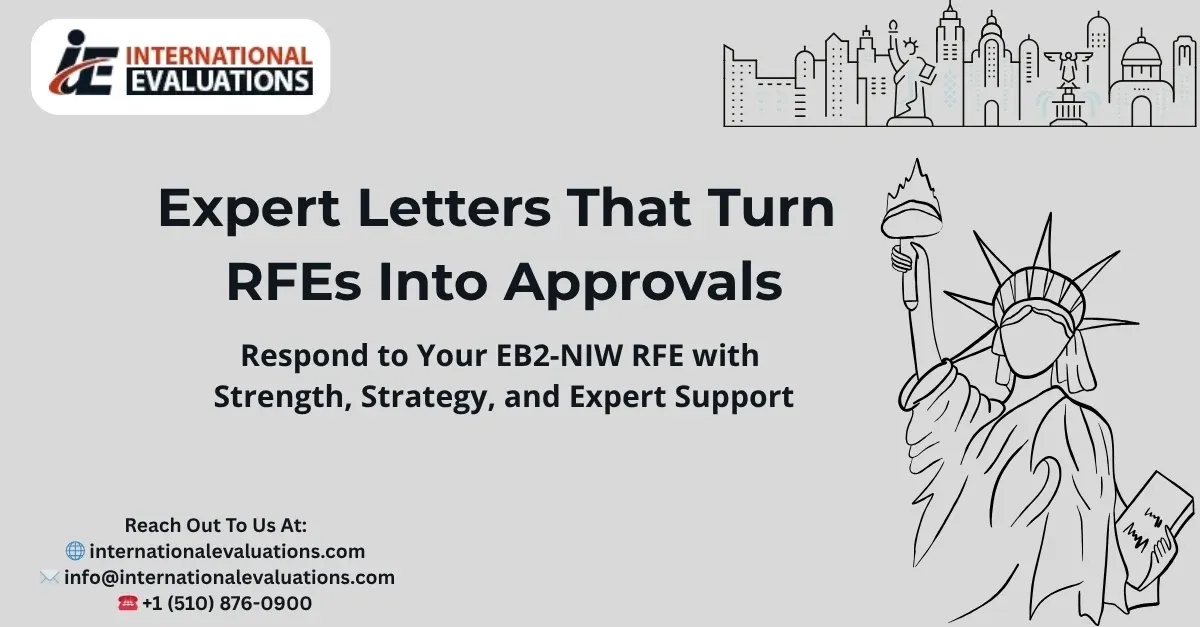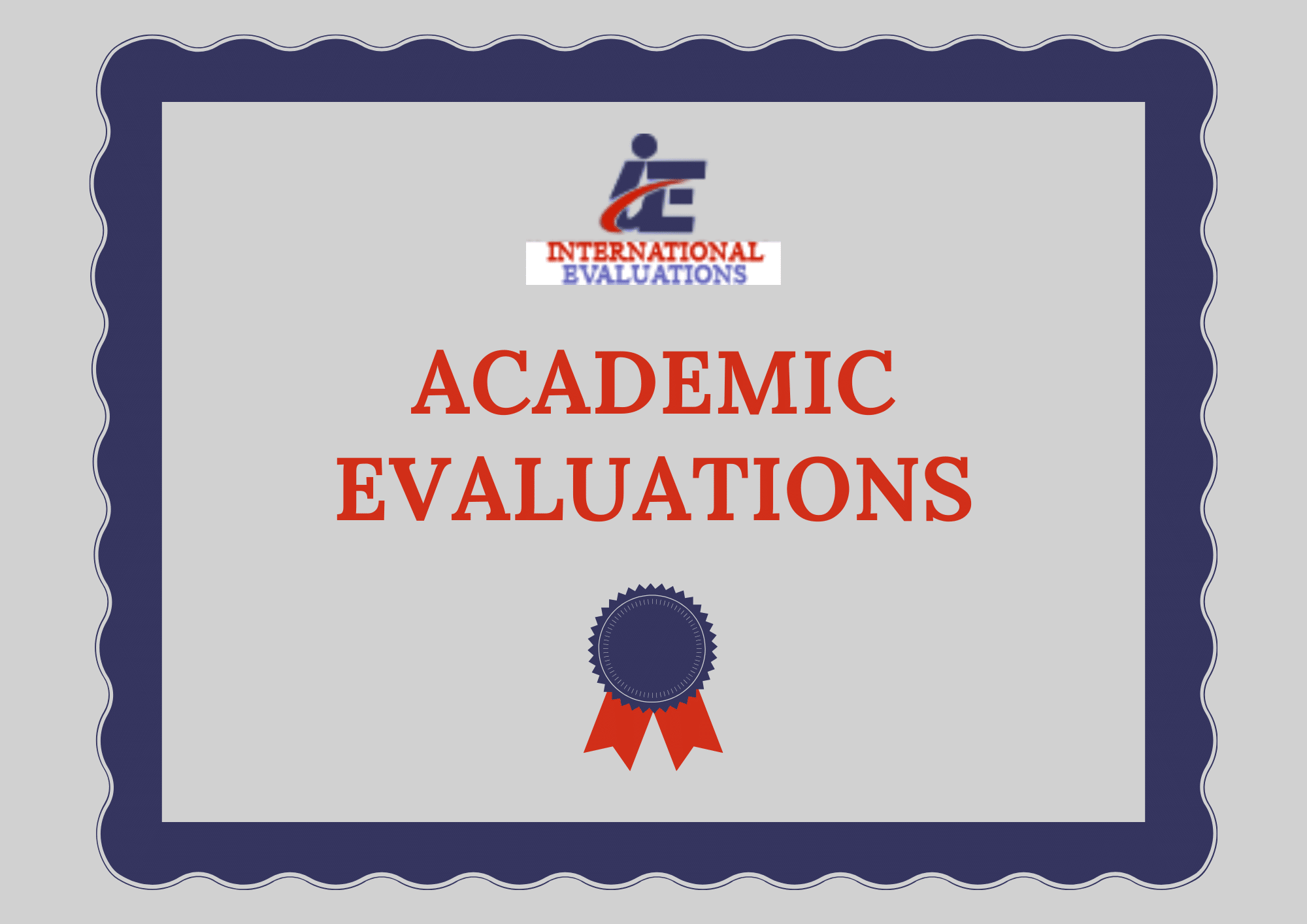Introduction
In a progressively globalized world, the significance of assessing work experience for global markets can not be downplayed. As companies expand their horizons across borders, understanding how to efficiently evaluate work experience becomes vital. The need for accurate academic credential evaluation and international credential examination services occurs, with a focus on aligning professional qualifications with regional requirements.
This article explores the important considerations and techniques involved in evaluating work experience for global markets. By examining various facets consisting of course-by-course credential evaluation, work experience evaluation, and the role of professional opinion letters, we aim to offer detailed insights that cater to professionals, employers, and evaluators alike.

Evaluating Work Experience for International Markets: Key Factors To Consider and Strategies
When assessing work experience globally, several crucial factors to consider enter play. Each nation has its own set of requirements and practices relating to education and work. For that reason, comprehending these nuances is crucial in guaranteeing a dependable assessment of qualifications.
Understanding Worldwide Standards in Work Experience Evaluation
Countries vary considerably in regards to expert https://simonfmsm558.wpsuo.com/company-strategy-examination-important-analysis-for-future-growth certification and acknowledgment of credentials. For instance, what is deemed appropriate work experience in one nation might not hold the very same weight in another. Therefore:
- Researching Country-Specific Requirements: Acquainting oneself with the specific requirements set by regulatory bodies in target countries is crucial. Utilizing Credential Evaluation Services: Organizations concentrating on worldwide credential evaluation can supply valuable insight into how foreign credentials are viewed domestically.
The Role of Academic Credential Evaluation
Academic credentials work as a structure upon which work experience is frequently examined. Appropriate assessment makes sure that a candidate's academic background aligns with market expectations.

- Course-by-Course Credential Evaluation: This technique provides comprehensive insights into individual courses taken by candidates, translating them into equivalent credits within the host country's education system. General Evaluations: These provide an overview of a candidate's credentials however may do not have the granularity needed for certain professional sectors.
Importance of Course-by-Course Credential Evaluation
A course-by-course technique allows working with managers to assess prospects more thoroughly based on their scholastic achievements.

- Detailed Insight: This approach breaks down each course completed by a private, helping examine whether they satisfy particular instructional requirements expressed by regulatory bodies or employers. Facilitating Job Matching: By matching specific courses with job requirements, companies can make sure that prospects have precisely the ability required for functions within their industry.
Work Experience Evaluation: A Thorough Approach
Evaluating work experience transcends simply taking a look at task titles; it needs an analytical view that thinks about various aspects such as period, significance, and depth of duties undertaken.
Factors Affecting Work Experience Evaluation
Relevance to Position Sought: How closely does previous work associate to the potential role? Duration and Quality of Experience: Lengthy tenure may recommend stability but does it likewise show development and development? Nature of Duties Undertaken: What were the specifics? Did the candidate lead projects or contribute substantially to group goals?Expert Viewpoint Letters as a Resource
An expert opinion letter serves as a valuable tool throughout the evaluation procedure:
- Defining Expertise: An expert's insights can clarify complex roles and duties carried out in previous positions. Supporting Documentation: Such letters can reinforce applications when showing one's suitability based upon non-traditional experiences.
Developing Effective Business Strategy Evaluations
For professionals aiming to establish themselves internationally through entrepreneurship or consultancy roles, service plan examinations become paramount.
Understanding Market Needs: Conducting extensive research study into local market demands helps individuals in customizing their service proposals effectively. Evaluating Competitor Landscape: Understanding existing competitors will help form organization methods accordingly. Financial Practicality Assessments: Financial forecasts must be sensible based on readily available data from comparable existing companies within a region.Bridging Cultural Distinctions in Work Experience
Navigating cultural subtleties is essential when assessing worldwide qualifications:
- Keeping an open mind towards different working styles cultivates much better combination into diverse environments. Awareness of cultural norms can improve interaction among varied teams.
Utilizing Technology for Efficient Evaluation
The digital age has actually changed how assessments are performed:
- Online platforms assist in easier submission of documents needed for credential evaluations. Remote consultations imply that geographical barriers are less preventing than before.
Challenges Faced During International Work Experience Evaluations
Evaluators typically encounter several challenges while evaluating global qualifications:
Lack of Standardization Across Borders Variability in Educational Systems Language Barriers Restraining Clear Communication Insufficient Paperwork from CandidatesStrategies for Conquering Challenges
To mitigate these challenges:
- Engage with regional experts familiar with local practices. Use standardized structures where suitable to enhance assessments.
FAQs
What is academic credential evaluation?- It describes evaluating educational credentials from one country versus those recognized in another nation to identify equivalency.
- These services examine foreign educational paperwork to ascertain its validity and equivalence within regional contexts.
- This includes evaluating each specific course taken by a prospect rather of offering a basic introduction, concentrating on credit equivalencies.
- It helps companies evaluate if prospects have appropriate skills essential for success in particular functions within their organization.
- It's a document provided by recognized experts that validates a person's previous experiences or academic background worrying market standards.
- Ensure all records are main copies, include comprehensive descriptions of functions held throughout employment, and gather any extra supporting documents like recommendation letters or awards gotten during your career journey.
Conclusion
Evaluating work experience for global markets provides both opportunities and challenges alike; nevertheless, armed with proper strategies and understanding about crucial factors to consider such as academic credential evaluations and skilled opinion letters-- professionals can navigate these waters effectively! The globalization trend continues unabated; thus investing time into comprehending different approaches toward evaluating credentials throughout borders will pay dividends-- both personally and expertly-- allowing individuals to grow globally while contributing value-added perspectives derived from diverse backgrounds!